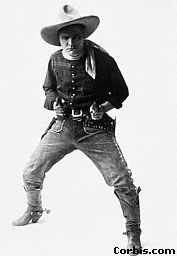 |
 |
 |
 |
 |
 |
 |
 |
 |
 |
 |
 |
 |
 |
 |
 |
 |
 |
 |
 |
 |
 |
 |
 |
 |
 |
 |
 |
 |
 |
 |
 |
 |
 |
 |
 |
 |
 |
 |
 |
 |
 |
 |
 |
 |
 |
 |
 |
 |
 |
 |
|
 |
|
|
 |
|
|
|
|
The History of Tucson , |
|
|
|
 |
|
|
|
|
|
|
|
|
|
|
|
 |
|
|
|
|
|
|
|
|
 |
|
|
|
|
|
|
|
|
|
 |
|
|
|
|
The Tucson area has been inhabited for at least 12,000 years because of the protective mountains and the Santa Cruz River. Much evidence has been unearthed -- the remains of pit houses and adobe huts -- that the Hohokam occupied the area 1,000 to 1,500 years ago before mysteriously vanishing from the region. |
|
|
|
|
|
 |
|
|
|
|
|
|
|
|
|
|
|
 |
|
|
|
|
|
 |
|
|
|
|
|
|
|
|
 |
|
|
|
|
|
|
|
|
Father Eusebio Kino first visited the region in the late1600's and he found Tohon
O'odham the (Pima) Indians living and farming in the vicinity near Chuk Shon (Tucson,
meaning "village of the spring at the foot of the black mountain"), and in 1700 he
established several missions in the area, including Mission San Xavier del Bac,15 miles
from the modern city. |
|
|
|
|
|
|
|
|
|
|
 |
|
|
|
 |
|
|
|
|
|
|
|
|
|
|
The "Old Pueblo" has lived under four flags (Spanish, Mexican, Confederate and US).
On August 20, 1775 Irishman Hugh O'Connor, better known as Don Hugo O'Connor, was directed by
the Spanish Crown to survey the area. He was to locate the best sites for presidio (military posts) and
establish trade routes. In 1776, Don Hugo chose a site near the center of what is now downtown to establish the Presidio San Agustin. This was the northernmost outpost of Spain in the New World.
When Spanish rule was superseded by that of Mexico, the walled town remained the military headquarters of the province. |
|
|
|
|
|
 |
|
|
|
 |
|
|
|
|
|
|
 |
|
|
|
|
|
|
|
 |
|
|
|
|
|
Tucson became known as a rowdy frontier town, tempered by social refinements
brought by the city settlers. Shootouts took place frequently and men rarely ventured
unarmed into the streets. Still, the town prospered. By the early 1800's the population
was over 7,000. Tucson lay in the territory that was acquired from Mexico by the United
States in the Gadsden Purchase of 1854, and the town served as the territorial capital of
Arizona from 1867 to 1877. |
|
|
|
|
|
|
|
|
|
|
|
 |
|
|
|
|
|
|
|
|
Within a couple of years, Anglo-Americans began to arrive and the Butterfield Overland Stagecoach opened service to Tucson. To cope with the desert climate, these newcomers adopted much of the food, building techniques and other traditions the Mexicans had developed. Tucson's growth was further stimulated by the arrival of the Southern Pacific Railroad in 1880, the discovery of silver at nearby Tombstone and copper at Bisbee and irrigation developments. Since World War ll the city has experienced remarkable growth partly due to the annexation of suburbs. Tucson's dry, sunny climate and unique deser tlocale have made it a popular tourist and health resort and retirement community. The city's postwar industries have centered on aircraft and missle manufacturing, dude ranching and electronics research and manufacture. |
|
|
 |
|
|
 |
|
|
|
|
|
|
 |
|
|
|
|
|
|
|
|
|

|
|
|
|







